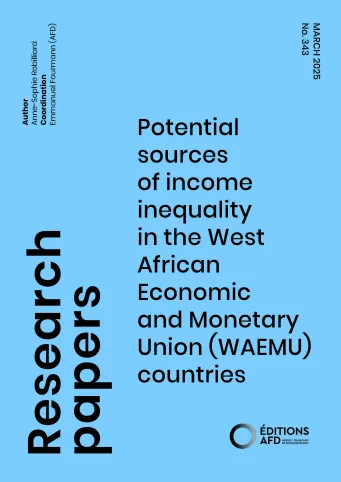Share the page
Potential sources of income inequality in the West African Economic and Monetary Union (WAEMU) countries
Published on

This paper examines income inequality in the West African Economic and Monetary Union (WAEMU) region, using recent harmonized household survey data across eight member countries.
The study explores the levels and drivers of inequality by assessing the differences between income- and consumption-based measures and measuring the contributions of various income sources.
Findings indicate that income inequality is substantial in WAEMU, with the top 10% capturing 43.2% of total income on average, significantly higher than the top 10% consumption share. Income from non-agricultural self-employment and wage employment are key drivers of inequality, while agricultural income and transfers exhibit equalizing effects.
The study also investigates the role of education, revealing that high returns to education in countries with low tertiary attainment—such as Niger and Burkina Faso—further exacerbate income disparities.
Despite their cultural and geographical proximity and similar institutional frameworks, the eight WAEMU countries display diverse inequality patterns, pointing to the influence of country-specific factors.
Measurement challenges, including the predominance of informal employment, underscore the need for supplementary data sources to enhance accuracy.
This analysis emphasizes the importance of policies focused on equitable education access, economic diversification, and improved data collection to address inequality effectively across the region.
Useful Information
-
Authors
-
Anne-Sophie Robilliard
-
Coordinators
-
Emmanuel FOURMANN
-
Edition
-
343
-
Number of pages
-
39
-
ISSN
-
2492 - 2846
-
Collection
-
Research Papers
